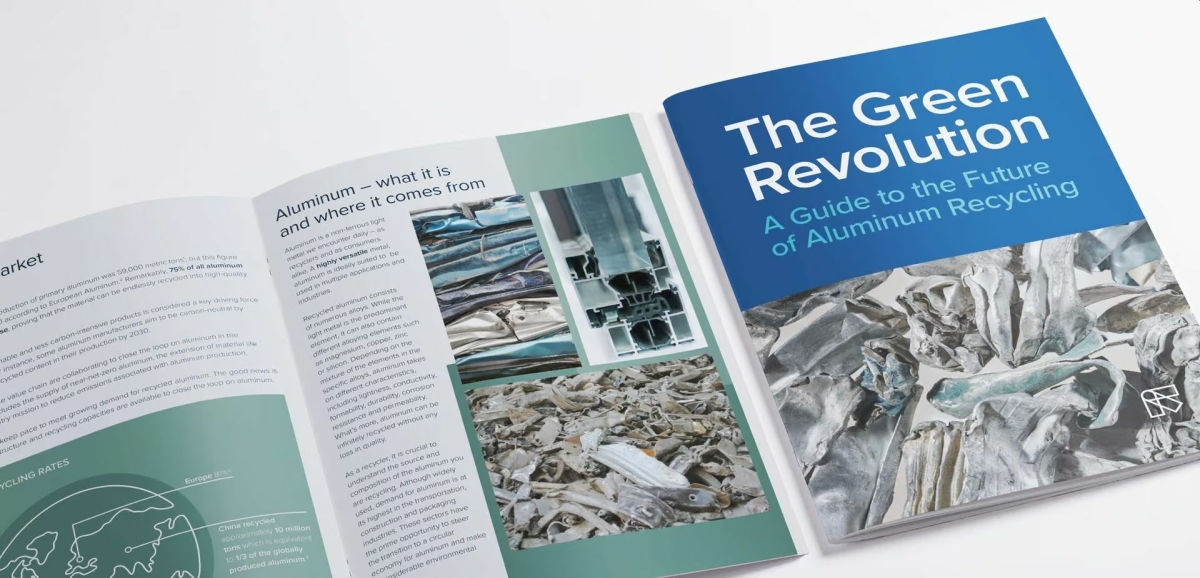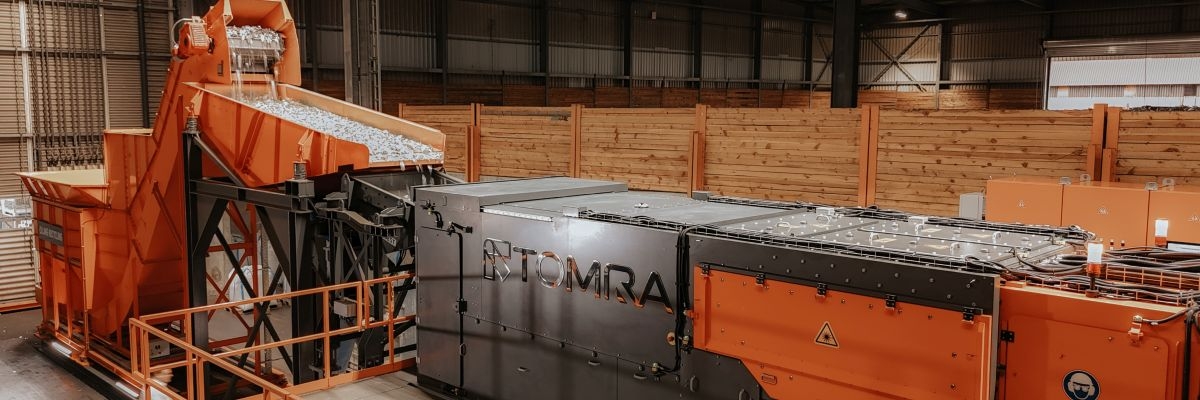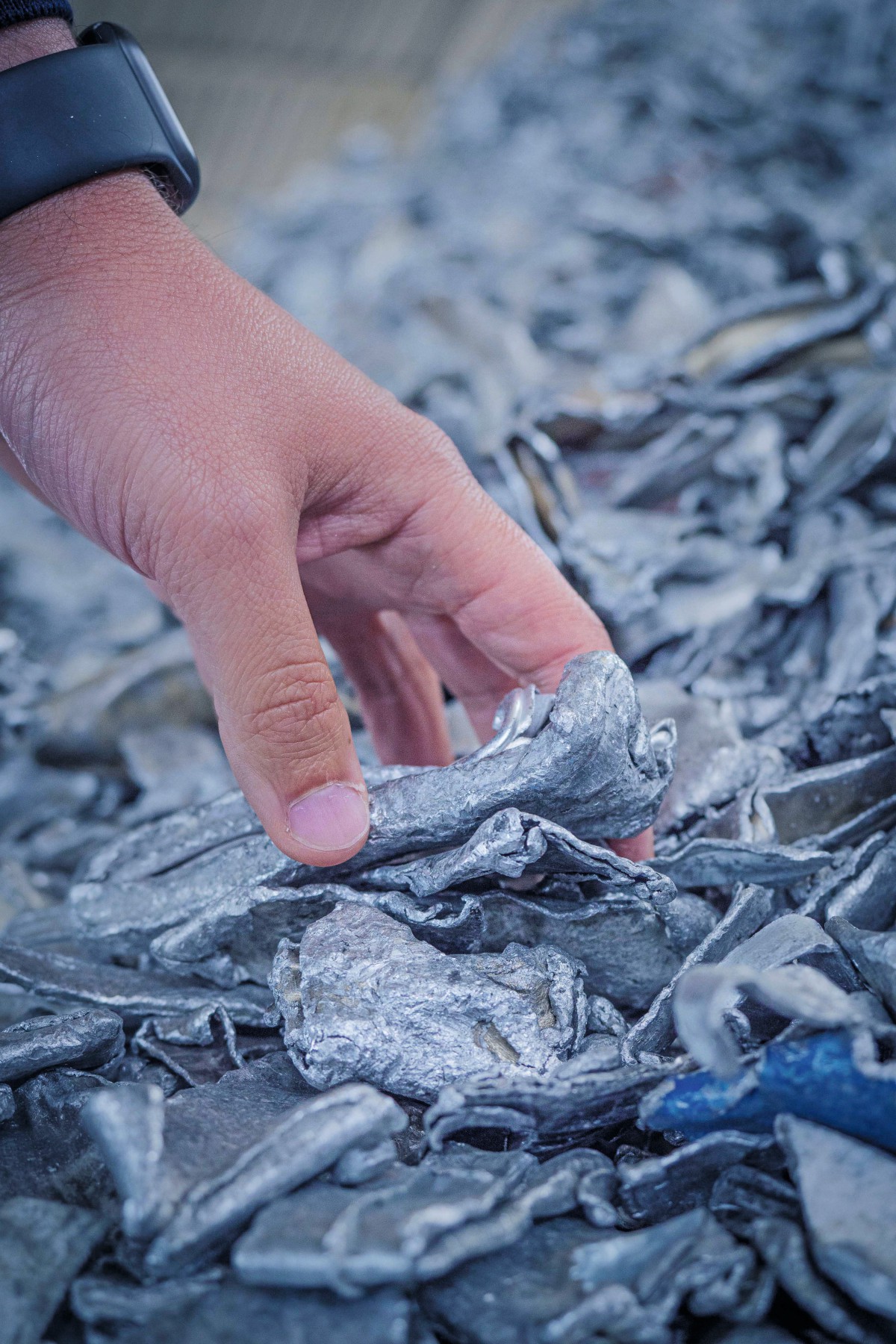The vital role of aluminum recycling in achieving carbon neutrality goals
22.11.2024From the recycling process itself to the innovative technologies supporting it, aluminum recycling offers a myriad of benefits for producers, processors and recyclers alike. Here, Frank van de Winkel, Market Strategy Manager – Metal at TOMRA Recycling, outlines the current aluminum recycling landscape and explains how, by embracing cutting-edge sorting technology, numerous industries can pave the way for a more circular economy.
 Frank van de Winkel is TOMRA Recycling's Market Strategy Manager and an expert in aluminum recycling with 20 years of experience in the industry
Frank van de Winkel is TOMRA Recycling's Market Strategy Manager and an expert in aluminum recycling with 20 years of experience in the industry
© TOMRA
Aluminum recycling: a pivotal solution
In an era of heightened environmental consciousness and intensified global sustainability goals, the aluminum industry stands as a dynamic force for positive change. As companies race to reduce their carbon footprints and embrace more sustainable practices, aluminum recycling has emerged as a pivotal solution. This versatile metal – found in everything from beverage cans to aircraft parts – offers a unique opportunity to conserve resources, minimize environmental impact and drive operational efficiencies.
Aluminum exists in two primary forms: cast aluminum and wrought aluminum. Cast aluminum is characterized by its high silicon content, while wrought aluminum contains minimal silicon. When cast and wrought aluminum are combined, the resulting alloy is primarily used in the production of cast aluminum because there isn't a straightforward or widely used method to completely remove silicon. This process, sometimes called ‘downcycling’ results in different products than those present in the scrap mix.
The source of aluminum significantly impacts its composition. Scrap aluminum feedstock can be categorized into two main types: post-production and post-consumer. These two categories, though both crucial to sustainable practices, differ significantly in their origins and characteristics.
Post-production scrap, as the name suggests, is generated during the manufacturing process itself. It often arises as byproducts or offcuts in the production of industrial goods such as automobiles, construction materials and appliances. This type of scrap is typically in a relatively pure state, having not yet been exposed to general usage.
Conversely, post-consumer scrap originates from the end of a product's lifecycle. It is generated by consumers who have used aluminum-based products and have subsequently discarded them. This type of scrap can come from a variety of sources, including end-of-life vehicles, households, businesses and public spaces. Unlike post-production scrap, post-consumer scrap is often contaminated with various substances, such as food residues, dirt and other debris.
Recognizing these differences in the origins of the scrap allows recyclers to tailor their sorting and processing techniques accordingly, ensuring that the recycled aluminum meets the required standards for various applications.
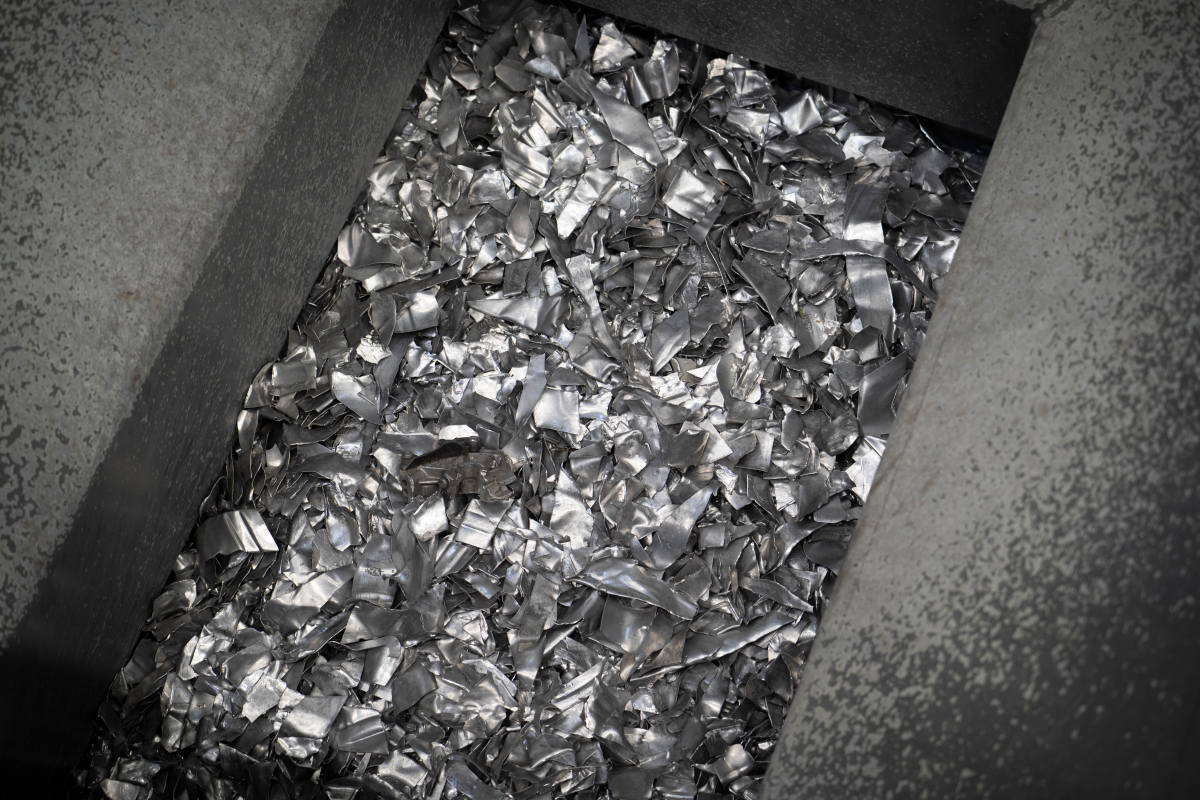 A primary obstacle in aluminum recycling is the difficulty of separating it from other metals once it has been combined in alloys. With advanced sorting technology, this is now possible
A primary obstacle in aluminum recycling is the difficulty of separating it from other metals once it has been combined in alloys. With advanced sorting technology, this is now possible
© TOMRA
The challenges of aluminum recycling
A primary obstacle in aluminum recycling is the difficulty of separating it from other metals once it has been combined in alloys. Given the vast array of aluminum alloys – with hundreds of different cast and wrought varieties – it is vital to maintain the scrap aluminum as close to its original composition, or at least to the desired composition of the final product.
Different aluminum alloys possess distinct properties, such as strength, corrosion resistance and malleability. By identifying the specific alloy of the aluminum being recycled, recyclers can optimize the recycling process to preserve these valuable characteristics and ensure that material is processed efficiently and cost-effectively. This knowledge enables reprocessors to produce recycled aluminum that is equivalent in quality and performance to primary aluminum, expanding its potential applications and increasing its market value.
Understanding the source of aluminum is crucial for maximizing recycling efficiency. By identifying potential contaminants or impurities, recyclers can implement targeted cleaning and sorting methods to remove these unwanted materials. This not only improves the quality of the recycled aluminum, but also reduces energy consumption and minimizes waste.
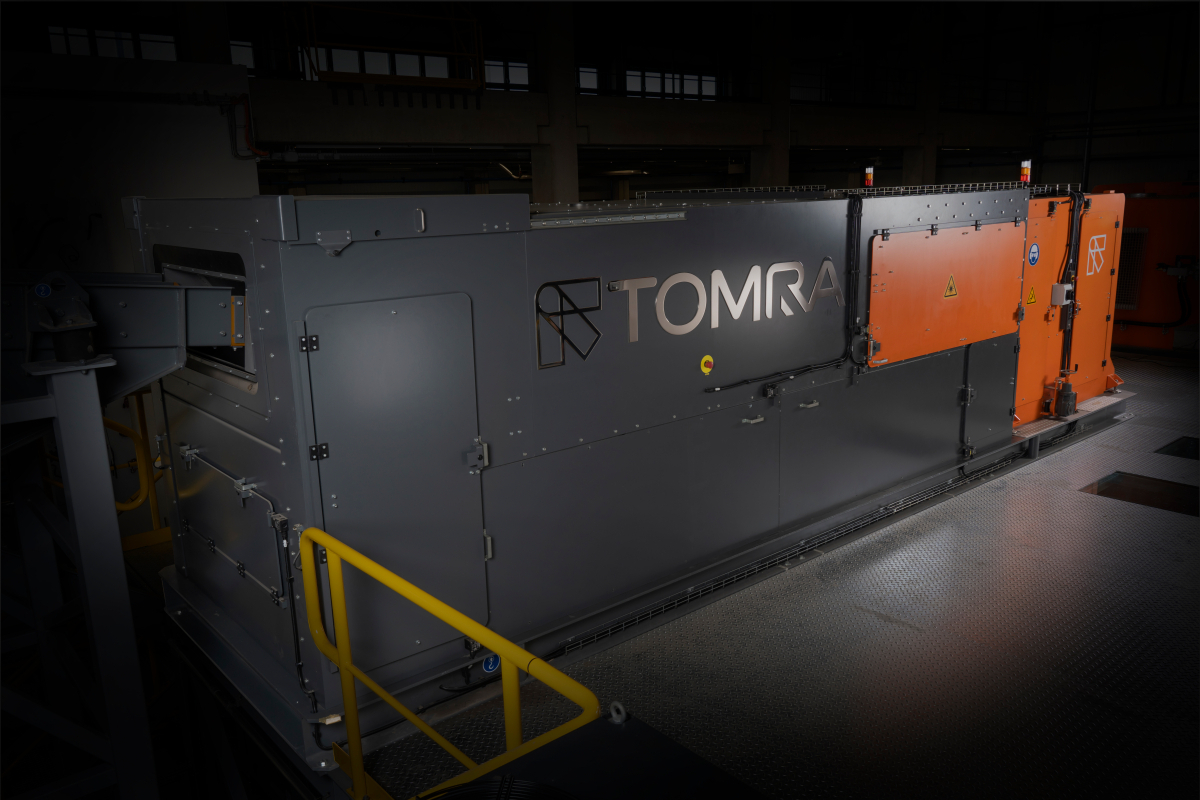 Another key benefit of AUTOSORTTM PULSE is its ability to minimize contamination and subsequently enhance the value and marketability of the recycled materials
Another key benefit of AUTOSORTTM PULSE is its ability to minimize contamination and subsequently enhance the value and marketability of the recycled materials
© TOMRA
The power of precision sorting
Advanced metal sorting solutions are revolutionizing the recycling industry by transforming scrap into valuable resources. These sophisticated systems leverage cutting-edge technologies, such as X-ray Transmission (XRT) technology – a powerful tool used for sorting and analyzing materials based on their atomic density – and artificial intelligence (AI) to accurately identify and separate various metals, ensuring high-purity outputs.
This precision sorting enables recycled aluminum to be used as a direct substitute for virgin material in various industries. From beverage cans to construction materials and automotive components, recycled aluminum can be seamlessly integrated into manufacturing processes without compromising product quality or performance. This not only conserves valuable resources, but also reduces the environmental impact associated with aluminum production.
TOMRA’s AUTOSORTTM PULSE is a prime example of such a solution. Leveraging advanced laser-induced breakdown spectroscopy (LIBS) technology, this innovative sorting system can rapidly analyze the composition of metal objects, distinguishing between different types, grades and even alloys, closing another gap on the journey towards full material circularity. This enables high-throughput production of alloy scrap fractions, maximizing their economic value and paving the way for a more sustainable aluminum supply chain.
Another key benefit of AUTOSORTTM PULSE is its ability to minimize contamination and subsequently enhance the value and marketability of the recycled materials. The system's precision sorting reduces the risk of cross-contamination, safeguarding the integrity of recycled materials and ensuring that the recycled materials are suitable for their intended applications.
The high purity of the aluminum scrap fractions delivered by AUTOSORT™ PULSE enables the material to be used in the aluminum smelting and production process without downgrading valuable materials. In extensive material testing at TOMRA’s test centers and at customers’ plants, AUTOSORT™ PULSE is consistently delivering purity levels of 95 % and above.
Looking to the future
The growing demand for recycled aluminum is being driven by the shift towards lighter, more sustainable products, particularly in the automotive and construction industries. The shift to electric vehicles has further accelerated the demand for recycled aluminum. Government regulations and industry initiatives, such as the EU's ban on CO2-emitting vehicles and its ambitious Green Deal targets, are also driving the demand for recycled aluminum as part of efforts to reduce greenhouse gas emissions and promote a circular economy.
As many countries and regions strive to fulfill their pledges of achieving carbon neutrality by 2050, the role of recycling in meeting these targets cannot be overstated. Among the various materials that can be sustainably repurposed, aluminum is a particularly valuable resource. Its recycling process offers a significant reduction in energy consumption compared to primary production, leading to substantial cuts in carbon emissions.
Those core industries where aluminum is widely used – such as automotive, transportation and construction – have a unique opportunity to lead the transition to a circular economy, minimizing environmental impact and accelerating progress towards carbon neutrality.
The future of aluminum recycling lies not only in recycling production scrap, but also in substituting primary raw materials with secondary scrap. This will require continued significant advancements in processing technologies, particularly in alloy sorting. Some of our customers are already pioneering this approach by implementing our range of advanced metal sorting solutions to facilitate more efficient and precise recycling.
New aluminum eBook
To highlight opportunities that aluminum recycling presents, TOMRA recently published an eBook which also outlines the range of sensor-based sorting technologies that can be used and configured to create a clean aluminum fraction based on recyclers’ specific requirements.
The eBook can be downloaded at https://www.tomra.com/green-revolution-aluminum

